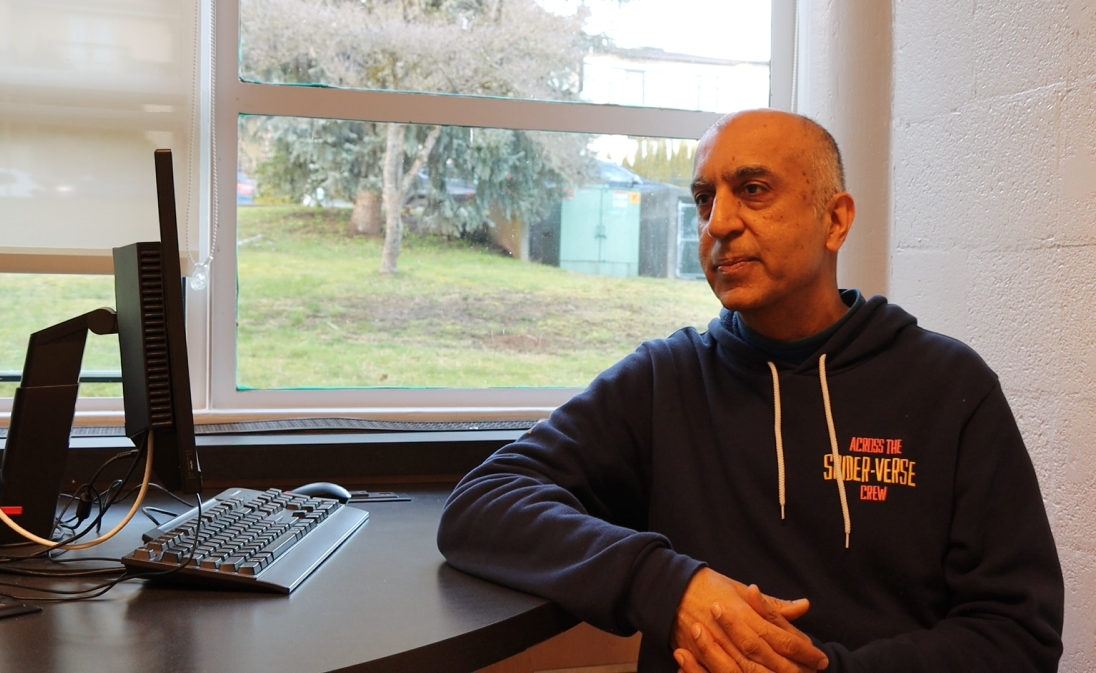
AI could take them sky high
This B.C. artificial intelligence and cyber security class will showcase their digital talents on the national stage
By YEORGIOS PRONTZOS
Sam Katevatis has some advice for those concerned about the growth of artificial intelligence technology and cybersecurity.
“The internet is not this big, complicated thing,” said Katevatis, a Grade 12 student at West Vancouver Secondary. “It’s a bunch of servers quite often literally held together with duct tape. The more you know, the more simple it gets.”
Katevatis is part of a special cybersecurity and artificial intelligence course pioneered by the West Vancouver School District. The year-long pioneer program, is the first of its kind delivered in a high school curriculum in B.C., enables 30 senior students from across the district to apply their cybersecurity talent and work in teams by competing in CyberTitan – Canada’s premiere cyber defence competition.
The program is in its second year and its success is already clear. Two teams placed first and second in competition round one among Canadian teams for CyberPatriot.
One team of students will now compete for the title of CyberTitan National Champion on May 7 and 8. The top performing Canadian teams represent their country at the CyberPatriot National Finals in the United States.
Machine learning
Since September, the students of the program have learned a vast array of computer skills: from the fundamentals of the internet to detecting bias in AI systems, while showing discipline and collaboration to achieve their goals.
The students offer practical advice for anyone who wants to learn more about these technologies but isn’t sure where to begin.
“What I found is the most helpful for explaining to people, is [to] use basic analogies,” Dylan Woods said. “Break it down into really simple stuff and once you get the overall understanding of it, then you can go deeper and figure out how it actually all works.”
“Every single long weekend, we meet at my place, and we have team meetings for hours and hours. We have lunch together, we discuss different virtual machine images, techniques, and teamwork,” August Lam, a CyberTitan finalist, said.
“Every competition is a new topic, and so you really have to get good at thinking on your feet,” Steven Su said.
To prepare for CyberTitan, the students learn to protect computer systems, as well as to penetrate them. They use their creativity to find weak points and gain access to information, while also learning how to defend against different attacks by patching vulnerable software.
Next generation of tech wizards
Program lead and teacher Mahesh Chugani created the program to educate students on the inner workings of the technology that many take for granted. He blends cybersecurity with artificial intelligence because in his view they go hand in hand.

“Cybersecurity is everywhere, and AI is everywhere. I’ve told them, when you eventually graduate, it doesn’t matter what your field is going to be. It could be engineering, law, medicine, whatever else it is, you will be using AI,” Chugani said.
In AI training, students learn the process of developing an app from start to finish. They learn the fundamentals of distinct software, critical safety, and ethical considerations of such a rapidly evolving field. Chugani doesn’t view the technology itself as the problem, but rather what the users do with it.
“It’s a fantastic tool, but you need to learn how to use it properly, safely for human good,” Mahesh said. “They want to reduce poverty, reduce hunger, and so on. Part of their project later on will be to think of an AI application which corresponds to the [United Nations Sustainable Development Goals].”
Facts over fear
Jories Timmers is the cybersecurity director at Powerex, a Vancouver-based energy trading company. Timmers has over 25 years of experience in IT and has closely watched the technology revolution from the days of the rotary phone to the development of ChatGPT.
He said that it’s fantastic that students are discovering these advanced technologies at an early age, because they learn to embrace technology and not be fearful of it.
“The less you know about it, the more scared you are,” Timmers said. “It can enrich your experience. You will be able to use it as a tool in your job, and that’s true for everybody in the next 10 to 15 years.”
Timmers said that people have a right to be skeptical, but it’s important to stay educated. “AI is coming really fast, and for the right reasons, it will concern people. But rather than dispelling it, people should try to understand and possibly embrace it in their own lives.”
